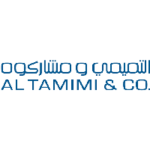-
What are the relevant government entities relating to immigration in your jurisdiction?
The Department of Enterprise, Tourism and Employment (DETE), formerly the Department of Enterprise, Trade and Employment issues employment permits to foreign nationals who require an employer sponsored permission to work in Ireland.
The Department of Justice, Home Affairs and Migration (DOJHAM), formerly the Department of Justice is responsible for several immigration functions in Ireland, including but not limited to:
- Processing and issuing entry visa applications.
- Issuing residency permissions to foreign nationals.
- Issuing work authorisations to foreign nationals who would not otherwise qualify for an employment permit in Ireland, e.g., permission under the Atypical Working Scheme.
The Immigration Service Delivery (ISD), operates within the DOJHAM and is responsible for (amongst other things):
- Processing a variety of immigration applications including those relating to EU Treaty Rights, Preclearance, entry visas and Atypical Working Scheme permissions.
- Overseeing the registration process for foreign nationals who spend more than 90 days in Ireland.
- Processing citizenship applications.
The Border Management Unit (BMU) manages the entry of foreign nationals in Dublin airport. The police force (An Garda Siochana) supports ISD in managing the entry of foreign nationals into Dublin Port and all regional ports of entry.
The Department of Foreign Affairs (DFA) manages the Irish embassies/consulates globally where visa-required foreign nationals must apply for their entry visa.
-
What are the options available for sponsor-based employment in your jurisdiction and timelines involved in securing a work permit?
- Critical Skills Employment Permit (CSEP) – for highly skilled/highly salaried roles.
- General Employment Permit (GEP) – for roles not capable of being filled from within the EEA market.
- Intra-Company Transfer Employment Permit (ICT) – for employees who work for an overseas “linked entity” of the Irish company being assigned to Ireland temporarily.
- Contract for Service Employment Permit – for a foreign contractor coming to Ireland to provide a service to an Irish entity.
- Sports and Cultural Employment Permit – designed to facilitate the employment for the enhancement/development, operation, and capacity of sporting and cultural activities.
- Reactivation Employment Permit (REP) – designed to permit foreign nationals who entered the Irish State on a valid permission but fell out of the system through no fault of their own, to re-enter the Irish workforce, once the REP has issued.
- Exchange Agreement Employment Permit – facilitates the employment of foreign nationals pursuant to pre-approved international agreements.
- Seasonal Employment Permit – a new employment permit type introduced under the Employment Permits Act 2024, which facilitates the short-term employment of foreign nationals for a maximum of 7 months per year in seasonally recurrent employment.
- Internship Employment Permit – for interns who are studying abroad and are applying to work in Ireland for up to 12 months.
- Hosting Agreement – for foreign academics and researchers carrying out research in Ireland.
- Atypical Working Scheme (AWS) is a short-term work permission authorising a foreign national to work in Ireland for a maximum period of up to 90 days on a consecutive or non-consecutive basis.
Processing times for employment permits vary, subject to application volumes. Average processing times at the time of publication are around 6-7 weeks, having recently slowed down due to the introduction of the new Employments Permits Online (EPO) portal in April 2025.
The Department of Justice, Home Affairs and Migration (DOJHM) processes AWS applications in approximately 1 week (from submission) at the time of publication.
Once the employment permit/work authorisation is approved, some nationalities also require an entry visa. Entry visa processing is dependent on the location of filing but are generally processed between 4-10 weeks (from submission).
-
What are the primary options available for unsponsored work and investment in your jurisdiction?
Ireland offers several unsponsored work and investment immigration routes, depending on the circumstances of the applicant.
Unsponsored work routes include:
- Stamp 4 permission: Stamp 4 permission can be obtained through a number of routes and allows foreign nationals to work without the sponsorship of their employer. The most common pathways are after two years on a CSEP; after five years on a GEP; Turkish nationals can apply after four years on an employment permit.
- Stamp 4 EU Fam/Stamp 4D: these permissions are issued based on a relationship with an EU/EEA/UK family member.
- Stamp 1G permission: A Stamp 1G is granted to foreign national graduates of an Irish university and is issued for a maximum of two years depending on the degree type. A Stamp 1G permission is also granted to the eligible spouse/de facto partner of a CSEP/GEP/ICT and Hosting Agreement holder and can be renewed in line with the primary sponsor’s permission.
- Stamp 1A: Stamp 1A permission indicates permission to participate in full time, paid accountancy training (subject to conditions).
- Working Holiday Authorisation: up to two-year permission for those aged 18-30 from certain countries including Australia, Canada and New Zealand.
- Start Up Entrepreneur Programme: is aimed at those wishing to set up their business in Ireland with €50,000 funding available.
-
What are the requirements for becoming a sponsor of employment-based migrants and what are the role and reporting duties of sponsors?
An employer needs to ascertain in advance whether potential employees have permission to work. The Employment Permits Act 2024 (employment permits legislation) provides that it is an offence to employ a non-EEA who does not have permission to work in Ireland.
To apply for an employment permit, companies must be registered with the Company Registration Office and with the Revenue Commissioners. A company must also hold an Employer Registered Number (ERN).
Employers must adhere to the 50:50 Rule which specifies that for an employment permit application to issue, at the time of the application, at least 50% of employees must be EEA nationals. There are certain exceptions to this Rule, such as start-up companies (potential exemption for 2 years) and if the employment permit has been issued before the Employment Permits Act 2024.
An employer employing foreign nationals must adhere to various reporting duties and compliance obligations, including:
- Ensuring foreign nationals have the necessary skills, qualifications, or professional accreditations to do their job, and that only suitable roles are sponsored.
- Ensuring the company has HR systems in place to monitor and track foreign nationals’ employment permits etc. and report any changes in circumstance.
- Reporting any changes to the sponsoring company’s business, for example, if the company stops trading, or is involved in a merger or take-over.
-
Are applications filed electronically, or paper base? Is a physical visa/work permit document issued or is an electronic approval issued?
Irish employment permit and work authorisation applications are generally filed electronically, and the resulting permissions are also generally issued electronically.
Irish entry visa applications are filed by way of a hard copy submission (to include original passport in most filing locations). The visa is issued as a sticker in the passport.
Once in country, the foreign national is required to register their residence with Immigration Service Delivery (ISD) by way of an in-person appointment in Dublin which is booked through the newly implemented Digital Contact Centre. Once the appointment has been completed, the approved Irish Residence Permit (IRP) card will be issued by ISD by post.
Since November 2024, all applicants, regardless of location in Ireland, can apply to renew their IRP cards online via the ISD website. Prior to this, residing in a certain location required an in-person appointment at their local Garda station.
Some immigration applications (such as EU Treaty Rights/applications to the Domestic Residence & Permissions Division) are made by way of a hard copy submission.
-
Is an in-person attendance/interview required as part of the visa/work permit application process? Is an individual required to enrol their biometrics (digital photo, fingerprint scan) as part of the visa/work permit process?
In-person attendance is not required for the employment permit application process.
For entry visa-required nationals, applicants may be required to attend an in-person appointment at a visa application centre/embassy/consulate to submit their biometrics, depending on their location.
Once in Ireland, all foreign nationals will submit their biometrics in person as part of the IRP registration and appointment process.
-
What persons qualify as dependants? Can dependants work based on their dependant visa status? Are there any restrictions?
Dependants are generally categorised as:
- A dependant partner (spouse civil partner, or unmarried partner), or
- Children under 18 (in some cases children up until 23, if in full time education).
Partners must be in a marriage or civil partnership that is recognised in Ireland. Unmarried partners must have been living together in a relationship for at least 2 years.
Spouse/de facto partners of a CSEP/GEP/ICT and Hosting Agreement holder are permitted to work on a restricted basis (excluding self-employment or setting up their own business).
Dependants of other employment permit types are not permitted to work in Ireland unless they obtain their own independent work permission.
-
What is the general time frame and processes for obtaining permanent residence and citizenship for sponsored and unsponsored business-related immigration?
Foreign nationals who have been legally living and working in Ireland as the holder of an employment permit for a minimum of five years are eligible to apply for Long Term Residency (LTR) which, if granted, means they will no longer require an employment permit to work in Ireland. Successful applicants will be granted a residence permission for five years. Processing times are approximately three to six months.
Individuals who have been legal residents in Ireland for at least five out of the last nine years are eligible to apply for naturalisation. This includes one year of continuous “reckonable residence” immediately before the date they apply. Processing times are approximately 12 months for most applications
-
What productive type activities can a business visitor undertake and for how long?
There is no clear definition of business activities. Generally permissible business visitor activities are:
- Attending business meetings or conferences.
- Visiting or conducting fact-finding missions at an affiliated branch office or subsidiary or a current project site.
- Attending contract negotiations and business transactions.
A business visitor can undertake these activities for the duration of the temporary permission granted upon arrival in Ireland. That permission will be no longer than 90 days and is at the discretion of the immigration officer at entry.
Individuals can carry out productive work activities for 14 days or less (can be requested only once every 90 days regardless of the duration to be spent in Ireland) without the need for an employment permission.
-
Can remote work be carried out from your country?
Yes, depending on the type of immigration permission, the foreign national may be permitted to work remotely at their Irish home/place of residence.
Any work from home arrangement (where permissible) should be stated in the employment permit application. A Workplace Relations Commission (WRC) declaration may be requested as part of the application acknowledging the potential for a home inspection by the Workplace Relations Commission.
In terms of Ireland having a “nomad visa or permission” permitting foreign nationals to work in Ireland, there is no such immigration permission.
-
Are there any productive work / revenue generating activities that can be carried out as a visitor and without the need for a work permit? If so, what activities and for how long?
The 14-day work permission route can be utilised once every 90 days and if granted, the permission allows a foreign national to enter Ireland to work without requiring an employment permission.
Foreign nationals can request the 14-day work permission on entry to Ireland if the productive work activities start and end within a single 14-day period.
If the foreign national requires an entry visa for Ireland, this will need to be secured before travelling.
The 14-day work permission is a temporary work authorisation, which is issued at the discretion of the immigration officer on entry to Ireland. This concession, if approved, can be used only once during a 90-day period.
Foreign nationals are required to present documentation to the immigration official to justify their stay in Ireland.
-
Is there a remote work or nomad visa category in your jurisdiction? If not, how likely is it that this will be implemented in future?
There is no remote work or nomad visa category in Ireland currently.
-
How easy is it to switch visa categories/jobs/employer from within country? And/or if made redundant, can the individual regularise their stay in another capacity and what is the timeframe allowable?
Foreign national employees on a Stamp 4 or Stamp 1G permission can change employer whenever they wish, although they should notify ISD of the change with 7 days.
The Employment Permits Act 2024 introduced a new process whereby holders of Critical Skills Employment Permits and General Employment Permits may be able to apply to change employer without applying for a new permit. The transfer is limited to movement within the occupation or occupation classification on the original employment permit.
General Employment Permit holders are applying to change employer within the type of employment for which they have been granted a permit (4-digit SOC code).
Critical Skills Employment Permit holders are able to change employer across a wider category of employment, e.g. different engineering roles (3-digit SOC code).
First-time employment permit holders must remain in their current employment for a period of nine months before applying for a new employment permit.
In exceptional circumstances, where circumstances fundamentally change the employment relationship (e.g. the employer changes the location of the business to a site that is a considerable distance from its current location, or significant changes are made to the nature of the foreign national’s work), the foreign worker may be granted an employment permit for an alternative job and may not need to remain with their current employer for the nine month period.
In redundancy situations, the foreign national must notify DETE within four weeks of the redundancy on a prescribed redundancy notification form and they will then have up to six months from the date on which they were made redundant to find another job. If they are successful, they will need to make an application for an employment permit. A temporary permission is granted to allow the foreign national to reside in Ireland and secure alternative employment, although they cannot work during this transitional period (unless an alternative employment permit has been obtained).
-
What common issues or concerns may arise for employers under business immigration in your jurisdiction?
Generally, the immigration process for employing sponsored foreign nationals in Ireland is reliable, with relatively short lead times for obtaining immigration permissions once employers have registered on the Employment Permits Online (EPO) portal. The lead time has slightly extended due to the introduction of this new portal and is sitting at around 6-7 weeks at the time of publication.
If required, the additional step of entry visa processing can sometimes be reliant on geo-political factors and the volumes at the time of application. There can be a variance in processing times depending on filing location and nationality which can make it challenging for companies to plan start dates.
Additionally, there are certain immigration applications which can experience an increase in processing times. These include naturalisation, foreign birth registration, and some preclearance and entry visas for partners of EU nationals.
The ability of employees to transfer from non-employer sponsored permissions to employer sponsored permissions can cause some internal challenges. Employers should note that for certain permission switches, employees may be required to leave Ireland.
-
Is there a fast track process / certification that business can obtain to expedite visa / permit processing?
Employment permits in Ireland are processed according to government timelines and on an as-received basis.
Requests to expedite or “fast track” an application is rarely accommodated and typically occur only in cases of emergencies or when approval is essential for business operations. Supporting evidence must be provided when requesting an expedited process. All decisions are at the discretion of the authorities and cannot be guaranteed.
For entry visas, whilst it is not yet possible to request expedited processing, the Irish Government announced their intention to create an expedited visa option for high-demand sectors. Whilst this is a welcome inclusion in the recent Programme for Government, there is no indicate as yet how and when this will be implemented.
-
What are the recent trends, both political and social that have impacted (or are anticipated to impact) your jurisdiction with regard to immigration policy and law?
Digitalisation
There has been an increased focus on digitalisation. The “Justice Plan 2024” set out the focus on delivering a digital immigration system.
This includes the full implementation of Ireland’s online portal for Irish Residence Permits (IRPs), which was rolled out in November 2024.
Additional applications have also moved to the online portal, including naturalisation and Turkish Association Agreement applications.
Asylum and International Protection
The Department of Justice, Home Affairs and Migration (DOJHM) has maintained its pledge to provide a haven to Ukrainian nationals who have fled Ukraine due to the invasion by Russia and has extended the Temporary Protection Directive for Ukrainians until March 2026.
A recent publication from the European Council states that a further extension of this permission has been agreed “in principle” until 4 March 2027. However, this has yet to be formally adopted.
There has been a significant increase in applications for international protection in Ireland with 18,560 applicants in 2024. The Irish Government’s Justice Plan 2024 has again focused on asylum seekers. Ireland has deemed Brazil, Egypt, India, Malawi and Morocco as safe countries and is continuing to review the safe country list.
Due to the ongoing Israeli violence in Palestine, Ireland has seen an eight-fold increase of asylum applications from Palestinians between 2023 and 2024 – rising from 118 applications in 2023 to 957 applications in 2024. In April 2025 the Minister for Justice, Home Affairs and Migration (DOJHM) stated that Palestinian asylum applications are not being accelerated compared to others e.g. accelerated process announced Pakistani nationals on 29 July 2025.
Programme for Government
In November 2024, a new government was elected in Ireland and that new government published its Programme for Government (the “Programme”) in January 2025.
The Programme acknowledges Ireland’s status as a small, open economy that depends on international talent to fill critical skill gaps.
Key immigration focusses areas in the Programme include:
- Prioritising skills-based migration, targeting sectors with significant shortages such as healthcare, ICT, engineering, and construction.
- Exploring the expansion of roles eligible for employment permits.
- Moving towards a unified application process that combines visas and employment permits.
- Continuing to enhance migration ICT systems and increasing investment and resources for faster processing.
- Introducing expedited visa options for high-demand sectors to facilitate quicker entry for skilled professionals.
- Linking migration and education policies to help international students, particularly in STEM fields, transition smoothly from student permissions to permanent residency, aiming to retain talent trained in Ireland.
-
How has the COVID-19 pandemic shaped current immigration landscape in your jurisdiction?
COVID-19 measures led to the authorities shifting focus to digitalising the immigration processes.
To facilitate the geopolitical and environmental changes, the Irish authorities made the number of changes:
- Ireland adopted several temporary measures, such as the implementation of regularisation programmes, travel exemptions for essential workers, and health care provisions for migrants regardless of their immigration status.
- The suspension of re-entry visa requirements for children under the age of 16 was introduced during COVID-19.
- The creation of the online renewal portal for individuals living in Ireland.
- The temporary prioritisation of medical permit applications.
- The digitalisation of immigration permissions such as employment permits, Atypical Working Scheme permissions.
Since the Covid-19 pandemic, Ireland has actively streamlined its immigration programme, transitioning many applications from paper submissions to digital formats.
The Department of Enterprise, Tourism and Employment (DETE) launched a new online application portal (EPO) designed to provide a more streamlined and inclusive application process. A key focus of the portal is to minimise the number of application submissions required by employers. Formal notifications, deregistrations and updating corporate information can now all be completed using the online EPO portal.
-
Are there any new and / or anticipated changes impacting immigration law and / or policy in your jurisdiction?
Employment Permits
The Department of Enterprise, Tourism and Employment’s (DETE) Strategy 2023-2025 sets out the focus on managing an efficient employment permit system.
Salary requirements increased across all employment permit types from 17 January 2024. Further increases were planned in 2025 and 2026. However, these have been temporarily paused pending the outcome of a recent public consultation.
In July 2025, DETE announced a further review of the occupations lists i.e., the Critical Skills Occupations List and the Ineligible List of Occupations for employment permits.
The release of the new Employment Permits Online (EPO) portal in April 2025 demonstrates a drive towards continued digitalization.
Employment Permits Act 2024 (the “Act”)
The Employment Permits Act 2024 was signed into law by President Higgins on 25 June 2024 and came into effect on 2 September 2024.
The Act consolidates previous legislation to make it a more accessible statutory basis for the Irish economic migration system.
Some of the most notable changes include:
- The introduction of a Seasonal Employment Permit and seasonal employer status.
- Revision of the labour market needs test.
- Several housekeeping changes – clarifications of particular provisions, moving of operational criteria to Regulations and the streamlining of a number of requirements to make the approval process more efficient.
- Updated procedures for changing employer in Ireland when holding an employment permit.
Single Application Process
The DETE announced on 15 December 2022 that the Irish government is developing a single application procedure for employment permits and immigration permissions.
The government received approval to implement the single permit system which will combine the process for obtaining the right to work and right to reside. The current timeline is for the change to be implemented by 2027 and will allow for Ireland to opt into the Single Permit Directive of the EU. This will ease the process for applicants and reduce the administrative burden on the State and future applicants. The Programme for Government has indicated that the visa and employment permit system will be merged into one user-friendly application procedure supported by a new ICT system.
Entry Visas
Nationals of Eswatini, Lesotho and Nauru became visa required countries in March 2025, and Trinidad and Tobago became visa-required in May 2025.
These changes have been implemented to align Ireland’s visa regime more closely to the Schengen and UK visa schemes.
EU Pact on Migration and Asylum – National Implementation Plan
The EU Pact on Migration and Asylum (the “Pact) encompasses a set of new rules that manage migration and establishes a common asylum system in the EU. The Pact aims to strengthen and integrate key EU policies like migration, border management, asylum, and integration. These reforms have been developed on foot of the 2015-2016 migration crisis. Ireland signed up to be part of the EU Migration and Asylum Pact on 31 July 2024 and are required to have put in place legal and operational tools to implement the Pact by June 2026.
The aim is to ensure that the EU has strong and secure borders, people’s rights are guaranteed, no EU country is left to struggle alone under pressure, and to embed migration in international partnerships.
In an Irish context, Ireland opting into the EU Migration and Asylum Pact will involve a full repeal of the current International Protection Act 2015. Ireland will receive €66.9 million in EU funding over the period of 2021-2027 – this funding is made up of €45.1 million from the Asylum, Migration and Integration Fund (AMIF).
Revocation of Citizenship
The Minister for Justice, Home Affairs and Migration signed an order, effective 7 April 2025, to commence legislation allowing for naturalised Irish citizenship to be revoked in serious cases where citizenship has been obtained fraudulently or when an individual poses a serious risk or threat to the Irish State.
-
How do you see technology developing and evolving to support immigration process in the future?
Digitalisation of immigration technology and processes is expected to continue. This was confirmed in Goal 3 of the Department of Justice, Home Affairs and Migration’s (DOJHM) Statement of Strategy for 2024 which aims to “deliver a fair immigration system for a digital age”.
The DOJHM aims to modernise the immigration environment by:
- Developing a fully digital customer-centric immigration service.
- Protecting the fairness and enhancing the efficiency if its immigration system through new strategic policies and legislative proposals.
- Communicating effectively with its service users, recognising and understanding the diversity and uniqueness of each individual circumstance.
- Restructuring the current immigration service to better serve its customers.
- Ensuring that effective controls are exercised at Ireland’s borders (in line with international obligations); and eliminating processing backlogs across all immigration application types.
Examples of the expansion of digitalization in the past 12 months include:
- Transferring registration responsibility for IRP renewals from local GNIB offices to ISD’s online portal nationwide has streamlined the IRP renewals process and has speeded up the renewal process.
- Naturalisation and Turkish Association Agreement applications can now be submitted online.
New Online Portal (Digital Contact Centre)
Since October 2024, all communications to the ISD have been transferred to their new Digital Contact Centre (DCC).
The new portal facilitates the booking of initial IRP card registration appointments, allows foreign nationals to monitor application statuses, amend ongoing applications and to submit direct queries to ISD.
This is a welcome change and signposts the digital transformation of Ireland’s immigration infrastructure, providing more efficient processes.
Digital Issuance of Labour Market Access Permission
Effective 29 January 2025, all Labour Market Access Permissions (LMAP) are issued digitally. LMAP allows eligible applicants, such as international protection applicants, to access the labour market in Ireland. Permission letters will be emailed directly to applicants, streamlining and expediting the application process. This digital transition aims to enhance the efficiency of the Labour Market Access Unit (LMAU) in processing applications, thereby reducing wait times and improving overall service delivery.
As an added security feature, all permission letters will include a Department of Justice, Home Affairs and Migration (DOJHM) watermark and can be verified by employers upon submission of LMA5 documents. Employers must inform their applicants about this new process and ensure they provide accurate email addresses during their application.
Employment Permits Online (EPO)
The Department of Enterprise, Tourism and Employment (DETE) launched the new Employment Permit Online (EPO) portal on 28 April 2025 to replace the previous Employment Permit Online System (EPOS). Users register on the portal and the application is now digitally signed on the portal.
-
What are the Right to Work requirements in your jurisdiction?
An employer should confirm their employees hold valid permission to work before they commence work and whilst they are employed
- Sight of original passport.
- Retain a copy the employment permit (where an employment permit is required). The Employment Permits legislation provides that the employer shall keep the following for a period of five years, or for the duration of the relevant employee’s employment: (i) a record of the employment concerned and the economic sector in which it is being performed; (ii) the duration of the employment; and (iii) particulars of the employment permit.
- Retain copy of the foreign national’s IRP card.
Regarding retention of documentation, the employer will need to comply with its statutory obligations under the Data Protection Acts, 1988 – 2018 (there are increasing obligations on employers in Ireland in terms of the retention and storage of employees’ sensitive personal data).
-
What are the types of civil and criminal penalties employers may face for non-compliance with immigration rules i.e. employing an individual who does not have the Right to Work?
The Employment Permits legislation provides that where a person enters the service of an employer in Ireland or is in employment in Ireland or where an employer employs a foreign national in Ireland except in accordance with an employment permit, the person and the employer shall be guilty of an offence.
They shall be liable to (a) on summary conviction, to a fine not exceeding €3,000 or imprisonment for a term not exceeding 12 months or both, or (b) if the offence has been committed by the employer, on conviction of indictment, to a fine not exceeding €250,000 or imprisonment for a term not exceeding 10 years or both. Penalties can extend to the members of the body corporate (shareholders) where the body corporate is managed by its members.
For offences under the Immigration Act 2024: (1) A person guilty of an offence under this legislation shall be liable on summary conviction to a fine not exceeding €50,000 or to imprisonment for a term not exceeding 12 months or to both. This would include failure to comply with the requirements in relation to registration. (2) A member of the Garda Síochána may arrest without warrant a person who he or she reasonably suspects to have committed an offence under this legislation (other than section 10) or section 2 (1) of the Employment Permits Act 2024.
-
Are there labour market testing requirements in your jurisdiction and if so, what do they involve?
The Employment Permits legislation provides that where a person enters the service of an employer in Ireland or is in employment in Ireland or where an employer employs a foreign national in Ireland except in accordance with an employment permit, the person and the employer shall be guilty of an offence.
They shall be liable to (a) on summary conviction, to a fine not exceeding €3,000 or imprisonment for a term not exceeding 12 months or both, or (b) if the offence has been committed by the employer, on conviction of indictment, to a fine not exceeding €250,000 or imprisonment for a term not exceeding 10 years or both. Penalties can extend to the members of the body corporate (shareholders) where the body corporate is managed by its members.
For offences under the Immigration Act 2024: (1) A person guilty of an offence under this legislation shall be liable on summary conviction to a fine not exceeding €50,000 or to imprisonment for a term not exceeding 12 months or to both. This would include failure to comply with the requirements in relation to registration. (2) A member of the Garda Síochána may arrest without warrant a person who he or she reasonably suspects to have committed an offence under this legislation (other than section 10) or section 2 (1) of the Employment Permits Act 2024.
-
Are there quota requirements, restrictions or a cap on the numbers of foreign nationals hired per company in your jurisdiction?
An employment permit will not issue unless at the time of application at least 50% of the employees in the firm are EEA nationals. This requirement is commonly referred to as the “50|50 Rule”.
The 50|50 Rule can be waived in certain circumstances:
- Start-up companies – the employer must be registered with Irish Revenue Commissioners as an employer within last 2 years, and the employer must have a letter of support from either Enterprise Ireland (EI), or IDA Ireland (IDA) and the latter waiver applies to client companies of EI or IDA only. By the time of renewal of the employment permits, the employer must be in a position to comply with the 50|50 Rule. If not, then a one-year employment permit may be provided in circumstances where the employer can demonstrate significant progress towards achieving 50% (this reduces the prospect of a company having to let people go to meet 50|50 Rule at the early stage of company’s business). Such renewals must also have a letter of support from EI or the IDA. The 50|50 Rule must be complied with at the end of that one-year renewal period.
- Employment permits in force at time of commencement of the Employment Permits Act, 2024.
- Where on the day on which the application is made the employer has no employees; the foreign national will be the sole employee; and the Minister for Enterprise, Tourism & Employment is satisfied that having regard to the employment in respect of which the application is made, the foreign national concerned will be the sole employee of the employer. This exception to the 50|50 Rule will also apply at renewal, provided the permit holder remains a sole employee.
-
Are there any exit procedures in your jurisdiction, if an individual is departing permanently?
If the employment or assignment ends before the expiration date of an employment permit, the employment permit must be surrendered to the Department of Enterprise, Tourism & Employment within four weeks from the date of termination or cessation. If the employer or employee fails to surrender the employment permit within four weeks of termination, a fine of up to €5,000 can be imposed or imprisonment for up to 12 months or both. In practice, this is rarely enforced.
It is also best practice to surrender a valid IRP card to the immigration authorities as soon as possible post-departure.
-
Are there any requirements for medical certificates or vaccinations for your jurisdiction?
Medical certificates, health declarations and details of specific vaccinations are not generally required for entry to Ireland.
However, there is an exception to this in the case of Stamp 0 applications. These permissions are applied for by non-EEA ‘people of independent means’ who are generally seeking to retire in Ireland, as well as non-EEA ‘elderly dependent relatives’ of those residing in Ireland. Both categories of applications require a health declaration to be submitted i.e., a letter from the applicant’s doctor detailing their current state of health is sufficient.
-
Are there any language requirements for your jurisdiction?
Only where the specific role sought for sponsorship has a language-based requirement or the applicant is seeking to avail of an exemption or a permit application under a specific occupation classification code.
-
What are the government costs associated with a typical employment based visa?
Employment permit category First application fee Renewal fee General Employment Permit €1,000 up to 24 months and €500 for six months or less
€750 for six months or less €1,500 up to 36 months
Critical Skills Employment Permit €1,000 up to 24 months N/A
Intra-Company Transfer Employment Permit €1,000 up to 24 months and €500 for six months or less
€500 for six months or less €1,000 up to 24 months
€1,500 up to 36 months
Atypical Working Scheme €250 N/A -
Is a local contract of employment required in order to obtain a work based visa or work permit? Are there salary or other thresholds to be met by the migrant?
Whilst most foreign nationals on Irish employment permits will have local contracts, some may be in Ireland on temporary assignment with overseas contracts i.e., on an Intra Company Transfer Employment Permit. The salary can likewise be paid from Ireland or overseas depending on the employment permit type. Any employment, tax or payroll implications stemming from where the contract and payroll is located should be considered separately.
Minimum salary thresholds depend on the employment permit type:
- Critical Skills Employment Permit (CSEP): €38,000 on 39-hour week.
- General Employment Permit (GEP): €34,000 (€30,000 for some exceptions such as if the job is a meat processing operative or a horticultural operative) on 39-hour week.
- Intra Company Transfer Employment Permit (ICT): €46,000 (€34,000 for some exceptions such as a trainee) on 39-hour week.
- Atypical Work Scheme Permission (AWS): Must align with the published salary requirement for a GEP (currently €34,000).
-
What are the maximum periods of stay for individuals on an employment based visa / work permit?
Under current Irish immigration rules, there is no maximum period of stay for Critical Skills Employment Permit (CSEP) or General Employment Permit (GEP) holders. After 5 years of continuous residence, it may be possible to apply for naturalisation or Long-Term Residency.
For foreign nationals holding an Intra Company Transfer Employment Permit (ICT), the maximum total stay is 5 years, after which time they will be required to leave Ireland or localise onto an Irish employment contract and employment permit i.e., CSEP or GEP.
-
Does your jurisdiction allow dual nationality?
Irish law does not impose any consequences regarding registration or renunciation of original citizenship. As such, dual citizenship can be held.
-
What are the most positive aspects of your immigration system compared to the rest of the world?
The Irish immigration system is focused on attracting skilled migration into shortage occupations to support and develop enterprise for the Irish economy. Ireland is part of the European Union which means it participates in freedom of movement, facilitating EU nationals to work and live here without requiring visas and employment permits. Similarly, despite Brexit, UK nationals can reside and work in Ireland without any immigration requirements.
For those foreign nationals who require an immigration permission, such as an employment permit or residency permit, the application process and different stages are relatively straightforward. The employment permit process can be completed online. Many roles such as marketing with a specific skill or language and technology roles are considered highly skilled and labour market testing is not required. Processing times have remained stable. For non-visa required nationals, the end-to-end process can be completed online without any need for an in-person appointments until they arrive in Ireland.
The current Irish immigration system facilitates progression to Irish citizenship by naturalisation for certain permission holders
Finally, the move to digital processes, allowing applications to be submitted online and issued in soft copy has been a very positive one. We see the trend of the Irish authorities considering the overall foreign national experience as a positive step and as recognition of the contributions (both economic and cultural) of the foreign national population in Ireland. Moving to a digital process allows for a more positive and efficient experience.
-
Are you facing any challenges resulting from a shortage of skills. If yes, which skills?
In the context of a strong economy, Ireland has historically thrived due to the easy movement of talent within the European market, serving as a fundamental pillar of the country’s economic growth and development. Nevertheless, despite the clear demand, a notable skills shortage in the fields of engineering, construction, agriculture and other areas is creating challenges for Ireland’s labour market.
Construction
As the Irish economy continues to grow and the demand for housing and infrastructure increases, significant skills gaps have emerged in the construction industry. Build Up Skills 2030 (“BUS2030”), an EU-funded initiative aimed at addressing these skills gaps in Ireland’s construction sector, provided valuable insights in their 2023 research report. By analysing workforce data, BUS2030 assessed Ireland’s current skills and projected the country’s needs for 2030.
The findings reveal that Ireland’s construction labour force is significantly under-resourced, requiring an additional 120,000 workers to meet infrastructure goals. This includes 22,000 electricians, 14,000 carpenters and joiners, 12,000 bricklayers and plasterers, 10,000 civil engineers, and over 24,000 general operatives such as machine drivers.
Employers in the construction industry are increasingly relying on non-EEA talent to address these urgent skills gaps. Since late 2023, all construction-related roles have become eligible for employment permits.
In 2024, a record 1,523 employment permits were issued to employers within this sector. Statistics published by the Department for Enterprise, Tourism and Employment (DETE) for Q1 2025 (January to March) indicated a 45% increase in permits. However subsequently in Q2, there has been a 32% decrease in permits issued for the construction sector.
Agriculture
Predominantly family-owned, farmers have pivoted to immigration and foreign national talent as a part-solution for their pressing labour needs. The agricultural sector has been particularly impacted by recent increases in the minimum annual remuneration (MAR) for employment permits. In the future, it may become uneconomical for farmers to hire foreign national staff, leading them to reduce their output to match a minimal workforce. This skills shortage in Ireland, compounded by challenges relating to employment permits, could contribute to a significant economic challenge in the sector.
-
Are there any plans in place to address green skills and/or to support transition to green economies’?
As part of the Climate Action Plan 2024, the government has set targets to reduce emissions by 51% by 2030 as compared to 2018 levels. Ireland’s Recovery and Resilience Plan 2024 focuses on investing in rail system upgrades and increasing energy efficiency in homes.
Green Skills 2030 aims to address the green skills gap in Ireland through further education. It evaluates various sectors, including construction, agriculture, transport, and energy, in collaboration with stakeholders. The goal is to support the skills needed to transition to a green economy in Ireland by enhancing training programmes and integrating green skills into existing courses.
Additionally, the Irish government is advocating for more renewable energy sources, such as solar and offshore wind. They have expanded planning and targets for offshore wind, which will require specialised skills in this area, where some of these skills may necessitate the hiring of foreign national talent.
Ireland: Corporate Immigration
This country-specific Q&A provides an overview of Corporate Immigration laws and regulations applicable in Ireland.
-
What are the relevant government entities relating to immigration in your jurisdiction?
-
What are the options available for sponsor-based employment in your jurisdiction and timelines involved in securing a work permit?
-
What are the primary options available for unsponsored work and investment in your jurisdiction?
-
What are the requirements for becoming a sponsor of employment-based migrants and what are the role and reporting duties of sponsors?
-
Are applications filed electronically, or paper base? Is a physical visa/work permit document issued or is an electronic approval issued?
-
Is an in-person attendance/interview required as part of the visa/work permit application process? Is an individual required to enrol their biometrics (digital photo, fingerprint scan) as part of the visa/work permit process?
-
What persons qualify as dependants? Can dependants work based on their dependant visa status? Are there any restrictions?
-
What is the general time frame and processes for obtaining permanent residence and citizenship for sponsored and unsponsored business-related immigration?
-
What productive type activities can a business visitor undertake and for how long?
-
Can remote work be carried out from your country?
-
Are there any productive work / revenue generating activities that can be carried out as a visitor and without the need for a work permit? If so, what activities and for how long?
-
Is there a remote work or nomad visa category in your jurisdiction? If not, how likely is it that this will be implemented in future?
-
How easy is it to switch visa categories/jobs/employer from within country? And/or if made redundant, can the individual regularise their stay in another capacity and what is the timeframe allowable?
-
What common issues or concerns may arise for employers under business immigration in your jurisdiction?
-
Is there a fast track process / certification that business can obtain to expedite visa / permit processing?
-
What are the recent trends, both political and social that have impacted (or are anticipated to impact) your jurisdiction with regard to immigration policy and law?
-
How has the COVID-19 pandemic shaped current immigration landscape in your jurisdiction?
-
Are there any new and / or anticipated changes impacting immigration law and / or policy in your jurisdiction?
-
How do you see technology developing and evolving to support immigration process in the future?
-
What are the Right to Work requirements in your jurisdiction?
-
What are the types of civil and criminal penalties employers may face for non-compliance with immigration rules i.e. employing an individual who does not have the Right to Work?
-
Are there labour market testing requirements in your jurisdiction and if so, what do they involve?
-
Are there quota requirements, restrictions or a cap on the numbers of foreign nationals hired per company in your jurisdiction?
-
Are there any exit procedures in your jurisdiction, if an individual is departing permanently?
-
Are there any requirements for medical certificates or vaccinations for your jurisdiction?
-
Are there any language requirements for your jurisdiction?
-
What are the government costs associated with a typical employment based visa?
-
Is a local contract of employment required in order to obtain a work based visa or work permit? Are there salary or other thresholds to be met by the migrant?
-
What are the maximum periods of stay for individuals on an employment based visa / work permit?
-
Does your jurisdiction allow dual nationality?
-
What are the most positive aspects of your immigration system compared to the rest of the world?
-
Are you facing any challenges resulting from a shortage of skills. If yes, which skills?
-
Are there any plans in place to address green skills and/or to support transition to green economies’?



















